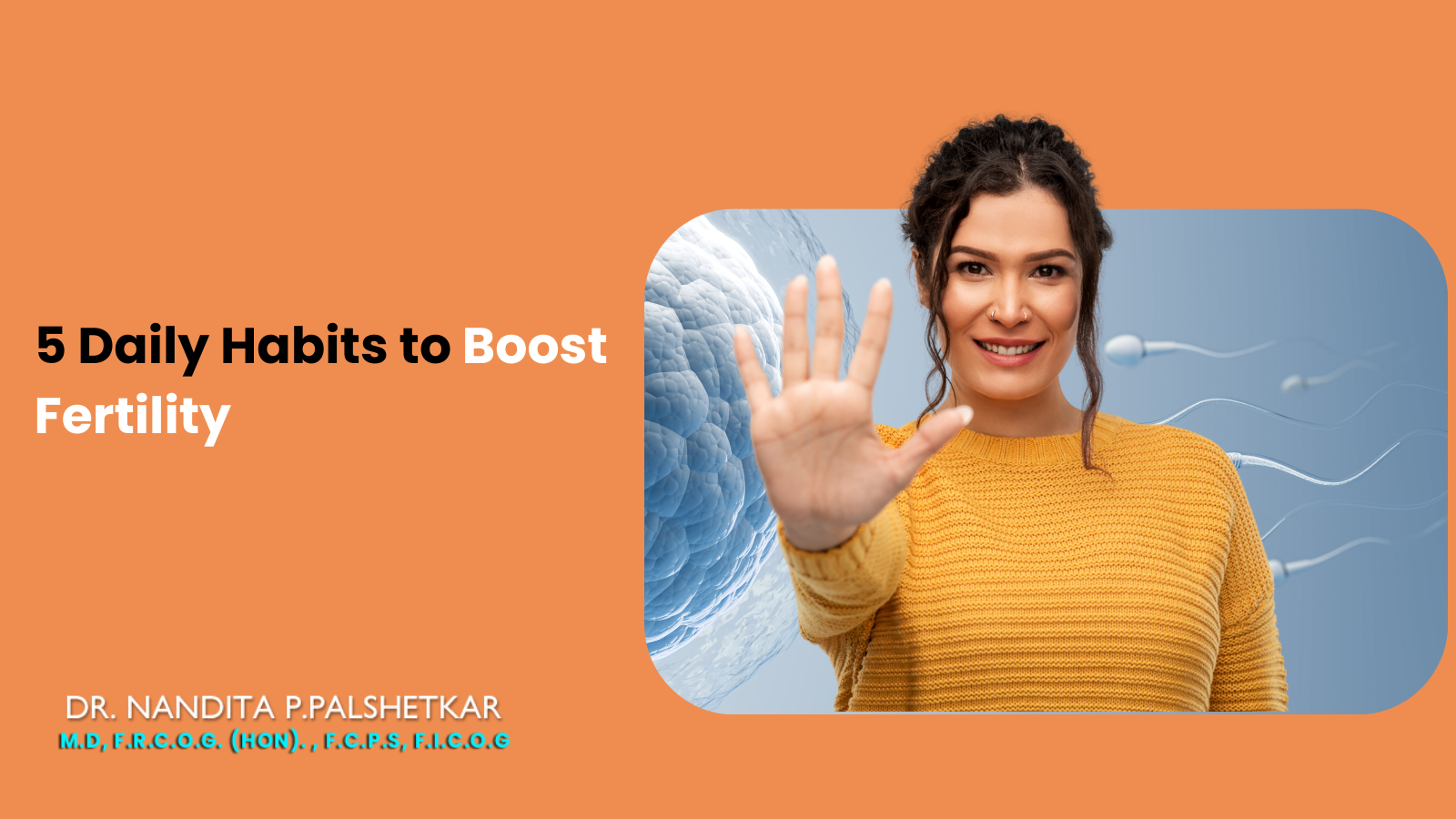

E-Brochure Download Now!

When it comes to fertility, small daily actions can make a surprisingly big difference. While age, genetics, and medical conditions play essential roles in a woman’s ability to conceive, lifestyle choices and everyday habits also have a strong influence. Building consistent routines that nourish the body, regulate hormones, and reduce stress can support reproductive health and prepare the body for conception.
This blog will guide you through five simple, everyday habits that women can start incorporating into their lives to boost fertility naturally. These are not complicated changes but practical steps that can improve overall well-being while creating the best possible foundation for pregnancy.
The old saying, “Breakfast is the most important meal of the day,” holds true when it comes to fertility. After hours of fasting overnight, your first meal restores energy levels and sets the stage for hormone regulation throughout the day. A balanced, nutrient-rich breakfast can help stabilise blood sugar, support ovarian function, and ensure your body is ready for conception.
Sugary cereals, pastries, or refined carbohydrates may lead to insulin spikes, which can disturb hormone balance and reduce fertility. Similarly, excessive caffeine early in the morning may dehydrate the body and interfere with hormonal rhythm.
Starting your day with the right foods can improve reproductive health over time and ensure you are giving your body the nutrients it needs to prepare for pregnancy.
Water is one of the simplest yet most overlooked elements of fertility health. It supports almost every function in the body, from hormone regulation and digestion to circulation and detoxification. Most importantly, hydration directly influences cervical mucus quality. Healthy cervical mucus helps sperm travel smoothly to meet the egg, making conception more likely.
A general recommendation is 2 to 3 litres per day. However, hydration needs vary depending on factors such as climate, activity level, and individual health. Women trying to conceive should also monitor urine colour, but it should be pale yellow, not dark or cloudy, which may indicate dehydration.
Avoid sugary drinks and soft beverages that spike insulin and interfere with hormone balance.
Consistent hydration not only improves fertility but also enhances energy levels, mental clarity, and overall health.
Sleep is a non-negotiable factor in fertility. The body’s reproductive hormones—such as luteinising hormone (LH), follicle-stimulating hormone (FSH), and progesterone- are closely tied to the body’s sleep-wake cycles. Poor or irregular sleep can disturb ovulation and reduce the chances of conception.
By prioritising rest, you give your body the recovery it needs to maintain hormonal balance and prepare for a healthy pregnancy.
Exercise is an excellent way to boost fertility, as it improves circulation, balances hormones, reduces stress, and helps maintain a healthy weight. However, balance is crucial, too much or too little activity can negatively impact reproductive health.
Experts recommend at least 150 minutes of moderate exercise per week. Avoid excessive high-intensity workouts, as they may disrupt menstrual cycles and reduce fertility. The key is to listen to your body and aim for consistent, enjoyable activity.
Regular movement not only supports fertility but also prepares the body for pregnancy by strengthening muscles and improving stamina.
Stress is one of the most underestimated barriers to conception. Chronic stress raises cortisol, which interferes with the release of reproductive hormones needed for ovulation. While stress cannot always be avoided, mindfulness practices can help reduce its impact on fertility.
High cortisol levels suppress gonadotropin-releasing hormone (GnRH), which regulates ovulation. Over time, this can lead to irregular cycles, delayed ovulation, or even anovulation (absence of ovulation).
The good news is that mindfulness does not require hours of practice. Even a few minutes daily can restore balance and help prepare your body for conception.
Improving fertility goes beyond medical interventions. Everyday choices, from what you eat in the morning to how you manage stress, can influence your reproductive health. A fertility-friendly breakfast, consistent hydration, quality sleep, regular exercise, and mindfulness are simple habits that create a supportive environment for conception.
Consistency is key. While these changes may not yield immediate results, they can gradually improve your chances of conceiving and enhance your overall well-being. Remember, every fertility journey is unique. If conception takes longer than expected, seeking professional guidance is always recommended.
Are you ready to start building small daily habits that can improve your fertility? Simple changes, when practised consistently, can help balance your body and prepare it for conception. For personalised advice and expert fertility care, consult Dr Nandita Palshetkar, one of India’s most respected fertility specialists. With her expertise, you can explore tailored strategies and advanced treatments to support your journey to parenthood.